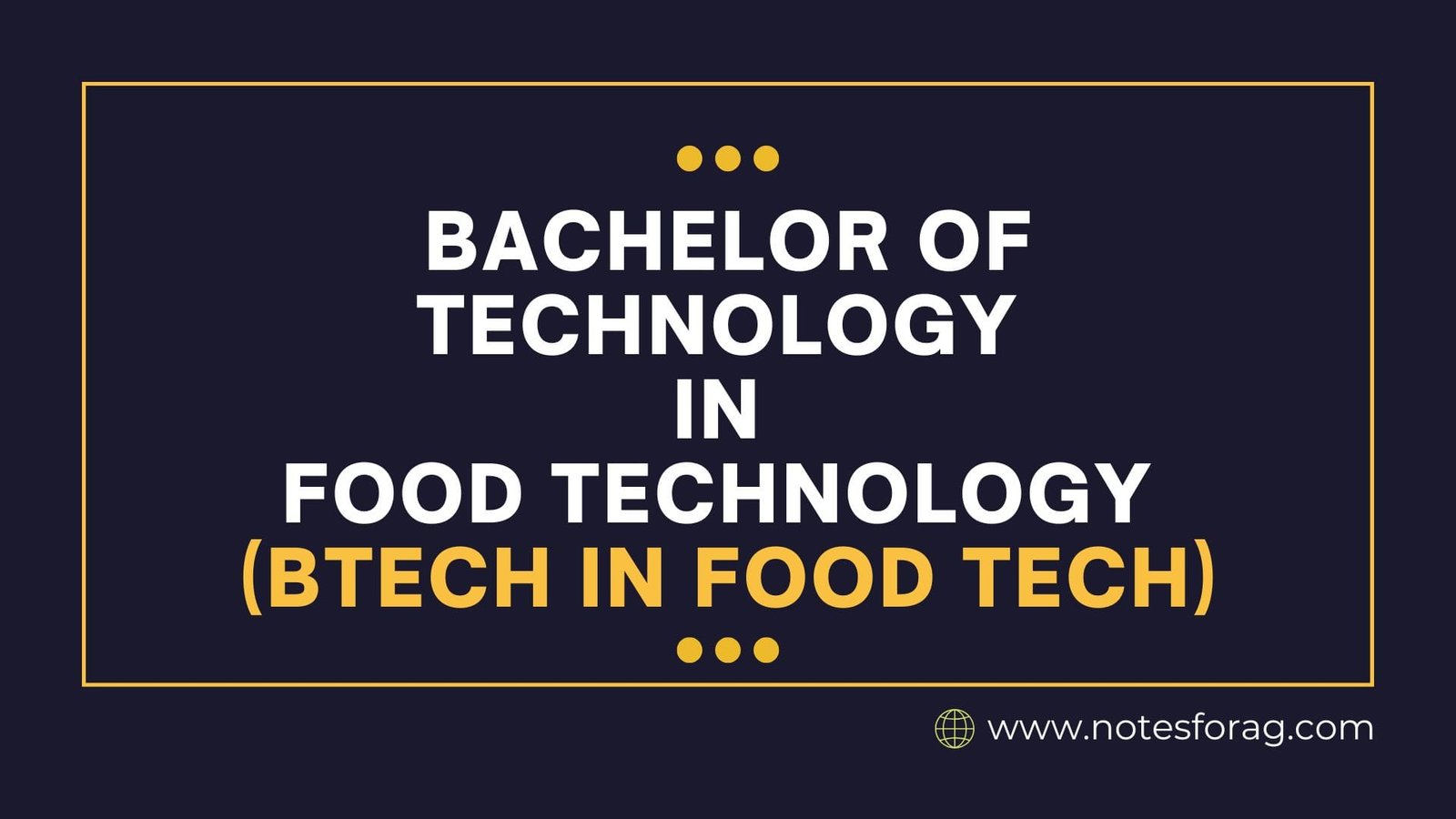BTech in Food Technology or Bachelor of Technology in Food Technology is an extensive four-year undergraduate program that delves deeply into the scientific principles and technological advancements related to food production, preservation, packaging, and quality management. This program equips students with a comprehensive understanding of the entire food production process, from farm to fork. Through a rigorous curriculum, students explore the complexities of food chemistry, microbiology, and engineering, enabling them to tackle pressing challenges in the food industry. Emphasizing innovation and sustainability, the program fosters critical thinking and problem-solving skills, preparing graduates to contribute meaningfully to the evolving landscape of food technology and meet the demands for safe, nutritious, and environmentally friendly food products.
Table of Contents
Objective
The main objective of the BTech in Food Technology program is to develop skilled professionals with expertise in food processing, preservation, quality control, and innovation. The program focuses on equipping students with knowledge of modern technologies, food safety standards, and sustainable practices to enhance the efficiency and quality of food production. It aims to prepare graduates to address challenges in food security, develop value-added products, and contribute to the growth of the food industry while ensuring public health and economic development.
BTech in Food Technology Syllabus
BTech in Food Technology 1st Year Syllabus
Semester I
Mathematics I
Physics I
English
Chemistry I
Basic Engineering, I
Food Biochemistry
Semester II
Value Education
Principals of Environmental Science
Mathematics II
Environmental Science
Material Science
Advanced Engineering
BTech in Food Technology 2nd Year Syllabus
Semester III
Mathematics III
Applied Mechanics and Strength of Materials
Food Microbiology
Unit Operation in Food Processing
Momentum Transfer
Stoichiometry and Engineering Thermodynamics
Semester IV
Kinematics of Machinery
Food Process Engineering
Crop Processing Technology
Fruit and Vegetable Processing
Kinematics of Machinery
Heat and Mass Transfer
BTech in Food Technology 3rd Year Syllabus
Semester V
Dairy Plant Engineering
Biochemistry of Processing & Preservation
Post-Harvest Physiology of Fruits and Vegetables
Fat & Oil Processing Technology
Refrigeration and air-conditioning
Computer Skills
Semester VI
Food Fermentation Technology
Food Plant Safety and Hazard Analysis
Food Industry Waste Management
Instrumentation and Process Control
Elective I
Elective II
BTech in Food Technology 4th Year Syllabus
Semester VII
Elective III
Elective IV
Food Packaging Technology
Management of Food Processing Industries
Bakery & Confectionery Technology
Semester VIII
Project or Internship
Elective V
Elective VI
Career Opportunities
Graduates can work in various sectors, such as:
- Food Production Companies: Roles in processing, quality control, and research.
- Government Agencies: Positions in food safety and public health departments.
- Research and Development: Developing innovative food products and technologies.
- Entrepreneurship: Starting businesses in food production or organic farming.
- Academic and Teaching Roles: Opportunities in universities and educational institutions.
Colleges offering BTech in Food Technology
- National Institute of Food Technology Entrepreneurship and Management (NIFTEM)
- Indian Institute of Food Processing Technology (IIFPT)
- Punjab Agricultural University
- Amity University
- Anna University
Conclusion
A Bachelor of Technology (BTech) in Food Technology presents an exciting and interdisciplinary educational path that merges principles of engineering, scientific inquiry, and innovative practices. This program is designed to address the escalating demands of the global food industry, which is constantly evolving due to advancements in technology and shifts in consumer preferences. Students will delve into various aspects of food science, including food safety, preservation techniques, and quality assurance, while also exploring sustainable practices that are crucial for the future of food production.
Related Articles

